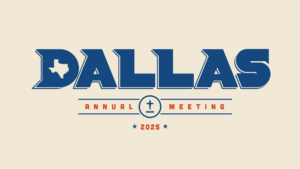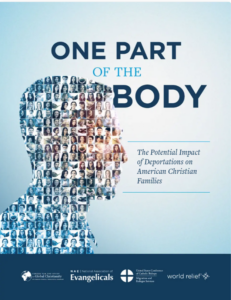
BUFORD, Ga. (BP)–With Americans — including Christians — struggling under a growing mountain of debt, pastors need to face the crisis head-on if there is any hope of turning around the trend, speakers said at an “It’s A New Day for Financial Freedom” workshop in mid-April.
Sponsored by the SBC Executive Committee in partnership with Crown Financial Ministries, the workshop gave pastors a preview of what their congregations will learn through a new church-wide curriculum to give Christians the keys to financial freedom.
“A lot of your people are in bondage financially. A lot of pastors are in bondage financially,” said Larry Wynn, pastor of the Atlanta-area Hebron Baptist Church in Dacula. Wynn’s church recently piloted the four-week financial freedom study now being championed by the Executive Committee’s It’s A New Day initiative.
“It’s a vehicle to connect your church to the community,” Wynn told pastors gathered for the workshop at the Atlanta-area North Metro Baptist Church in Buford. “It’s not a program that is primarily about giving. It’s about financial freedom.”
Wynn’s church promoted the special emphasis on a nearby billboard and arranged for public service announcements on local radio stations. Wynn told workshop participants that even though the church-wide study is not primarily about giving, church tithes and offerings can’t help but be impacted.
A recurring message heard from many speakers was that although many pastors regularly give sermons on the importance of tithing, few address the overall issue of stewardship and financial freedom.
“The Bible tells us how to handle 100 percent of our money God’s way,” Crown CEO Howard Dayton said in a video greeting to the April 12-13 workshop. “Most Christians have only been taught how to handle 10 percent of their money.”
Ed Stetzer, senior director of the North American Mission Board’s Center for Missional Research in Alpharetta, Ga., challenged pastors to look at debt as an opportunity to share the Gospel.
“Personal finance is a common experience that we can preach Christ in the midst of,” Stetzer said. “See it as a cultural bridge over which you can proclaim the Gospel.”
Many people in North American culture feel trapped by debt and see no way out because they have been drawn into the trap of thinking more is better, Stetzer said.
“The folly of the ‘more-is-better’ syndrome really is a window to the heart,” he said. “Sin is the overwhelming debt in this life.”
Stetzer said NAMB’s research center recently studied 500 church plants and identified the key characteristics associated with three categories: higher baptisms, higher attendance and higher survivability.
“Surprisingly, the only common factor in all of the three categories was a comprehensive stewardship program,” Stetzer said.
Gary Smith, senior pastor of Fielder Road Baptist Church in Arlington, Texas, told pastors at the workshop they must be the first to lead in the area of stewardship.
“You must model it,” he said. “Life is not about having. You need to come to a point in your life where you ask, ‘How much is enough?’ And then you must realize instead, it’s about how much we can give.”
Smith took pastors beyond financial and material possessions when he challenged them to godly stewardship. “Our kids don’t belong to us either,” he said, pausing to tell the story of his late son, Drew, who died at age 13. Smith, who has held numerous leadership roles in SBC life, told of his inability for years to move past his son’s death.
“I finally had to realize that I was still trying to possess my son,” he said. “And so, on my knees on the living room floor where we discovered his body, I gave him again to God, just as my wife and I had done when he was a baby.”
Only then was he able to move past the grief and deep hurt his son’s death had inflicted on him and his family, Smith said.
Ken Hemphill, national strategist for the SBC’s Empowering for Kingdom Growth initiative, challenged pastors to see how personal debt and financial enslavement is keeping Christians from fully seeing God’s ability to work through them.
“God’s blessings were not meant to be consumed, they were meant to be conveyed,” Hemphill said. “God created everything with Kingdom purpose and potential.”
–30–
For more information about the SBC’s “It’s A New Day for Financial Freedom” initiative, visit www.sbc.net/newday.














